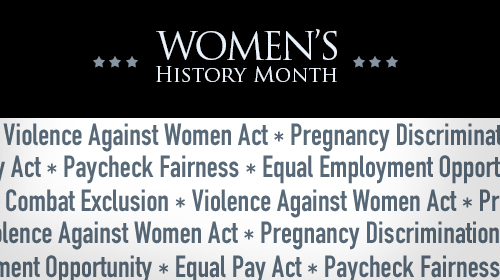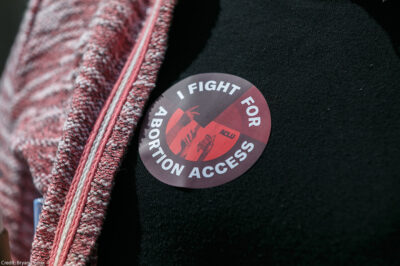
On this International Women's Day, March 8, we call on the United States government to apply the same human rights principles it preaches for women elsewhere around the world, to women here at home. We are currently in the middle of the two-week United Nations Commission on the Status of Women (CSW). This year's 57th CSW focuses on elimination and prevention of all forms of violence against women and girls. On Tuesday, the ACLU was invited to take part in an interactive discussion with a panel of world experts. The United States participated in the discussion as well.
In its statement during the panel, the US asserted, "All women and girls have a fundamental right to live free from violence and fear." The US delegate also noted that "Last year, President Obama launched the first-ever U.S. Strategy to Prevent and Respond to Gender-Based Violence Globally." While we applaud the President's efforts to tackle violence against women globally, the government must do more to ensure women's right to be free from violence in our own country. To do so, the government should apply international human rights principles to its domestic policies to end violence against women.
The ACLU's intervention at the CSW focused on a central principle of international human rights: the due diligence principle. Due diligence means that countries have an obligation to adopt measures aimed at preventing violence against women and girls from occurring in the first instance, investigating violence when it does occur, and punishing perpetrators, whether the perpetrator is a government official or a private actor. Unfortunately, in the US, few governmental actors are aware of the due diligence standard and there is no coordinated effort to ensure its consideration in designing domestic violence prevention and responses.
The case we litigated, Lenahan (Gonzales) v. United States, provides an example on point. In June 1999, Jessica Gonzales' three young daughters were abducted by her estranged husband and killed after the Castle Rock, CO police refused to enforce a restraining order against him. Gonzales filed a lawsuit against the police, but in 2005, the Supreme Court ruled that she had no constitutional right to police enforcement of her restraining order. We then filed a petition with the Inter-American Commission on Human Rights (IACHR) on her behalf. In 2011, the IACHR found that the United States had violated the human rights of Jessica Lenahan and her children. The US must now implement the recommendations of the IACHR. However, the US lacks any coordinated mechanisms to communicate how its human rights commitments and obligations should shape domestic policy, programming, education or outreach to governmental and nongovernmental actors. The failure to communicate these standards and their importance for policy compounds the likelihood that serious violations will persist.
At the CSW interactive session, the US stated: "We need implementation, accountability and enforcement." That is precisely what we are demanding from the US. The US should implement the recommendations of the IACHR, which would go a long way toward ensuring accountability of police officers and government officials. Women who hold protective orders should be able to rely on the police to enforce those orders and should know that if the police fail to do so, the government will hold them accountable. Even if the Supreme Court does not interpret the Constitution to impose this obligation, the international human rights due diligence standard does. It is not enough for the US to work toward preventing and responding to gender-based violence elsewhere around the world; the government must ensure that its own house is in order. The time has come for the US to recognize its role as a member of the world community and to bring women's human rights home.
Learn more about Women's History Month and other civil liberty issues: Sign up for breaking news alerts, follow us on Twitter, and like us on Facebook.



